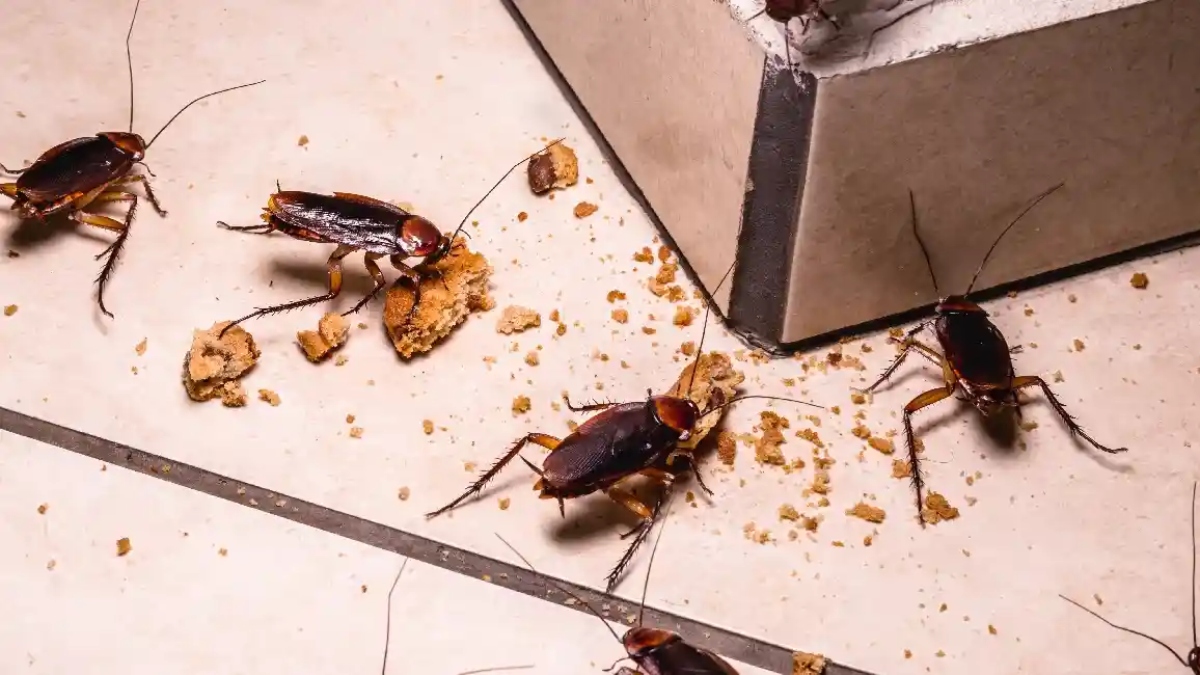Table of Contents
Avoiding pests in the kitchen is a great way to maintain a healthy home. When ants, roaches, as well as rats and mice, walk on food, they ruin it and spread germs in your living space.
Yet, you can take some easy steps to keep these unwanted guests away. This post looks at hands-on remedies to avoid pests in the kitchen and maintain a healthy environment.
What Attracts Pest
Pests come into the kitchen for many reasons. Food sources, such as crumbs and spills, are a major attraction for ants, cockroaches, flies, etc. Moisture-loving insects like silverfish and certain ants are also enticed by damp areas commonly found in kitchens.
Additionally, the warmth generated by cooking appliances makes kitchens a cosy spot for insects seeking heat. Lastly, the numerous hiding places in kitchens, such as gaps in storage areas and behind appliances, provide bugs with protection and breeding grounds.
Maintain Kitchen Cleanliness
An efficacious strategy to deter vermin from your kitchen involves maintaining its immaculate state. These unwelcome visitors are enticed by food scraps, spills and leftover bits. Sanitise the surfaces thoroughly to ensure that there are no food remains that would attract pests. Additionally, consistently clean the kitchen floor by sweeping and using a mop to remove the particles and spills you missed. Cleaning these areas weekly can help lower the risk of an invasion.
Another crucial step, in maintaining cleanliness is emptying the kitchen trash daily. Cockroaches and ants are often drawn to garbage. Using a trash can with a secure lid can help keep pests from it. Also, remember to clean the trash can itself to eliminate any residues that might attract pests.
Lastly, declutter your kitchen. Piles of newspapers, unused boxes, and other clutter can provide hiding spots for pests. Keeping your kitchen organised and free of unnecessary items will help you spot and address any pest issues promptly.
Seal Food Containers and Proper Food Storage
If you leave food out or don’t store it correctly, pests can easily find their way. To thwart ants and beetles, deploy hermetic containers to keep pantry essentials such as grains, cereals, and flour. Choose robust glass, metal, or durable plastic containers, each equipped with a fitting lid.
Refrigerate items and avoid leaving food on the countertops. Even fruits and veggies should be put away quickly to avoid attracting fruit flies and other unwanted critters.
Periodically inspect your pantry and cupboards. Check for signs of pests such as droppings, eggs, or damaged packaging. If you find any infested items, dispose of them immediately. Then, clean the area thoroughly to prevent the pests from spreading.
An equally crucial practice is meticulous labelling and inventory rotation. Adopting the “first in, first out” strategy ensures that older provisions are consumed prior to newer acquisitions, thus diminishing the likelihood of forgotten food becoming a pest magnet. Marking containers with purchase or expiration dates aids in managing usage timelines effectively.

Dispose of Garbage Properly
It has a big impact on keeping bugs out of your kitchen. Garbage draws pests, so you need to handle it well. Employ a bin with a secure lid to deter vermin from accessing the waste within. Remove kitchen rubbish daily to minimise odours and leftover food that attract pests. Also, use a compost bin with a robust lid for items like fruit peels and vegetable scraps. This will diminish waste in your trash bin and reduce the likelihood of attracting pests.
You should clear the garbage bin frequently in order to minimise any particles or spillage that might attract pests to it. Using a concoction of water and vinegar is a good idea for that. Also, the bins should be away from the kitchen entrance doors to be on the safe side of rats and roaches getting inside your house.
Furthermore, be mindful of recycling bins. Hygiene is the number one factor all the time so always rinse recyclable containers such as bottles, cans, and jars before placing them in the bin. This eradicates any food residue that might attract pests. Store recycling bins outside if feasible, and ensure they possess tight-fitting lids to keep vermin at bay.
Use Natural Repellents
Some natural substances are a potent and environmentally conscious method to ward off kitchen pests. Essences such as peppermint oil and citrus concoctions are renowned for having pest-deterring qualities. Particularly, peppermint oil is a formidable deterrent against ants and spiders – blend a few droplets of this essence with water in a spray container. Then, apply it to likely access points such as windowsills and thresholds.
Citrus peels also present a natural barrier against pests. Positioning dry citrus rinds in cabinets, drawers, and other potential hideouts can thwart pest infiltration. Citrus’ strong smell is disagreeable to many pests, thus acting as a repellent. You can also prepare a citrus infusion by boiling citrus peels in water, subsequently utilising the cooled elixir as a repellent.
Regular Pest Management and Professional Pest Control Services
A pest-free kitchen requires regular inspection. You should look for signs of pests like droppings, chewed food packaging, or even damaged foods. Most often, pests nest on seemingly hidden sites, such as under the sink or behind kitchen appliances. Detecting pests early is crucial. This way you can control the issue before it turns into an infestation.
Besides regular inspections, you can hire professionals for indoor pest control. Exterminators can provide thorough inspections and treatments tailored to your specific needs. They will do a detailed inspection and will provide a range of treatments depending on your requirements. Scheduling routine pest control services can ensure that your kitchen remains pest-free year-round.
Conclusion
To keep pests at bay in your kitchen, you have to engage in a cleaning activity, turn to proper food storage, and implement other preventive measures. Practices such as preserving a clean environment, shutting the containers where food is kept air-tight, properly disposing of waste, using natural deterrents, and conducting regular checks can contribute to the house being pest-free. At the same time, professional pest control providers will ensure that you are free of infestation without the fear of diseases bringing discomfort to your family.



